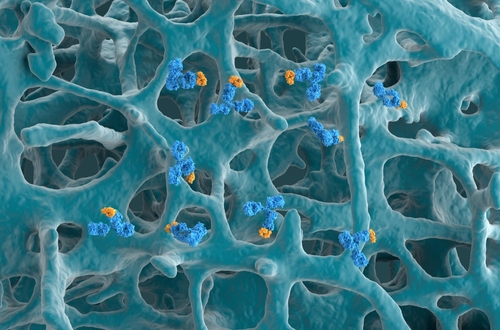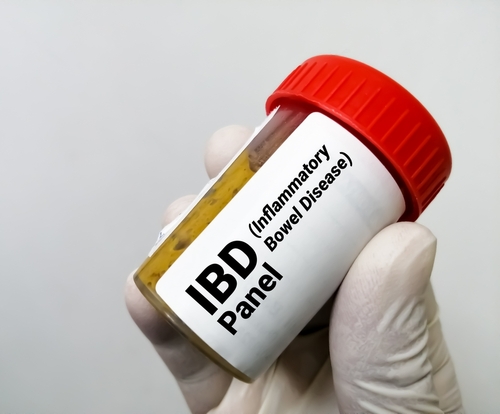
The U.S. Food and Drug Administration (FDA) approved the use of nintedanib capsules, which slow the decline of pulmonary function in adults with interstitial lung disease associated with systemic sclerosis or scleroderma (SSc-ILD). This marks the first FDA-approved treatment for this condition. Nintedanib was originally approved in 2014 for adult patients with idiopathic pulmonary fibrosis (IPF).
“Patients suffering from scleroderma need effective therapies, and the FDA supports the efforts of drug companies that are designing and conducting the clinical trials necessary to bring treatment options to scleroderma patients,” said Nikolay Nikolov, M.D., associate director for Rheumatology of the Division of Pulmonary, Allergy, and Rheumatology Products in the FDA’s Center for Drug Evaluation and Research in a press release. “Nintedanib is now a treatment option to slow the rate of decline in pulmonary function in patients who have interstitial lung disease from scleroderma.”
The efficacy of nintedanib was assessed in a randomized, double-blind, placebo-controlled study comprised of 576 patients aged 20-79 with ILD. The test measured forced vital capacity (FVC), defined as the amount of air that can be forcibly exhaled from the lungs after taking a deep breath. According to the results of the study, patients who took ninetedanib experienced less lung function declined when juxtaposed to participants administered with the placebo.
Important Safety Information
Overall, the safety profile observed in nintedanib treatment was consistent with the known safety profile of the therapy. The most frequent serious adverse event reported in patients treated with drug was pneumonia, which occurred in 2.8% patients treated with nintedanib compared to 0.3% in the placebo. Moreover, adverse reactions leading to permanent dose reductions were reported in 34% of nintebanib-treated patients compared to 4% of those treated with a placebo, and the most common adverse reaction to result in dose reduction was diarrhea.
The prescribing information for nine includes warnings for patients with moderate or severe liver impairment, and those with elevated liver enzymes and drug-induced liver injury and patients with gastrointestinal disorders. Nintedanib may also cause embryo-fetal toxicity that can result in fetal harm, blood clots, bleeding and gastrointestinal perforation. P-gp and CYP3A4 inhibitors may increase nintedanib exposure, and patients taking these inhibitors should be closely monitored for tolerability of nintedanib. Common side effects noted with nintedanib include diarrhea, nausea, abdominal pain, vomiting, liver enzyme elevation, decreased appetite, headache, weight loss and hypertension.
.@US_FDA approves #nintedanib for systemic sclerosis-associated interstitial lung disease #ILD #Ofev #scleroderma https://t.co/YHoi7rcTso
— Healio Pulmonology (@HealioPulm) September 6, 2019
According to the FDA, they granted ninetedanib: “Priority Review designation, under which the FDA’s goal is to take action on an application within six months where the agency determines that the drug, if approved, would significantly improve the safety or effectiveness of treating, diagnosing or preventing a serious condition. (Nintedanib) also received Orphan Drug designation, which provides incentives to assist and encourage the development of drugs for rare diseases.”
FDA approves first treatment for patients with rare type of lung disease | FDA https://t.co/nCX4iB8oBa pic.twitter.com/zbQRcHfLYO
— Krishan Maggon (@kkmaggon) September 7, 2019
FDA approves first treatment for patients with rare type of lung disease
"Nintedanib is now a treatment option to slow the rate of decline in pulmonary function in patients who have interstitial lung disease from #scleroderma.”https://t.co/Sk6p2w3Kom
— Juan Ovalles MD, PhD (@DrJuanOvalles) September 6, 2019







 © 2025 Mashup Media, LLC, a Formedics Property. All Rights Reserved.
© 2025 Mashup Media, LLC, a Formedics Property. All Rights Reserved.